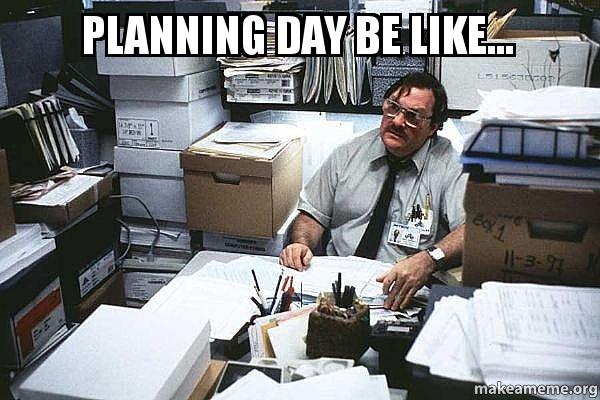How to Plan Your Unit

When you start planning your first unit, you suddenly start to realize how much stuff you'll forget to include that will become readily apparent in the classroom during instruction. Being deliberate, concentrated, and sure that your unit covers every base you want it to can be a tall order, and one that many a teacher will struggle with years into their careers. I found that building a unit was equal parts confusing, frustrating, rewarding, and liberating. I simultaneously knew exactly what I wanted to do and knew nothing I wanted to. I could pinpoint why I wanted certain questions to be asked or why certain concepts seemed more viable than the others, but I struggled to relate everything back to the standards, or even figure out the concrete reasons why I wanted to use something. In this case, I think the biggest takeaway from building my unit was that it's a process that I will learn more than once in my life. It is a skill that will be constantly evolving, and I will never finish developing, especially since every new semester presents a different challenge than the last. Just as it has been proven with clothing, medicine, and style, no one size will fit everyone, and every unit requires a delicate and coordinated touch.

I think one connection I made when writing this unit is how multiple seemingly different topics are revisited when we plan in the future. We began this semester talking about precision and being careful in making things, which is now translating to giving us more power in describing those things and their relationships. We are still using all the understandings that we learned early on to make a bigger and more powerful math toolkit that our students can continue to use in the future. Another thing we have spent a lot of time with is making sure students feel more comfortable noticing details. They notice the little things about a situation that are honestly make-or-break things that they will need to accurately describe an entire situation. It's crazy to think that early in the unit we will tell them to be careful and identify details about everything they look at, then have that come back and be the lynchpin in their strategy to starting their proofs. The fact that we spend so much time looking at the little things helps them develop that mindset of being tricky with details and paying attention to an entire situation. Even abstract math is easier to understand when you know what you're looking at!

When I build a unit in the future, I'm going to be far more cognizant of the callback potential of future lessons to help students see how what we are doing builds on itself and becomes a bigger and more descriptive picture as we layer that complexity in over time. I want to be aware of these moments so I can call them out and show my students that we're not just learning whatever in a vacuum based on my whims as a teacher that day. By noticing the little things in my units, it will also make them more complete and ensure they cover a variety of different skills and useful tricks for my students. Being more aware of the little things and smaller lesson points in my lessons will only make them more accessible and available for students as we proceed through a unit together.

A small bit of adive for those of you embarking on the task of writing your first unit: take this seriously and be careful in your planning. The more you frontload your work, the less adjustment and trial and error you will need to do in the future. The more careful you are with setting up the unit now, the more it will mean to your students when you are presenting the material to them. The more places you can find where real-world examples from your life shine with the content hand-in-hand, the more that it's going to seem applicable to your students and the more they're going to get out of your instruction. Above all else, never give up on planning. You're going to put a ton of work into putting a unit together and the first few times it may feel like you've failed, forgotten something, or somehow let your students down. When it feels this way, remember that you can always try it again and run it back from the start. Teaching is an iterative process, and every year is a new development to prove that you can deliver what your students need to be successful in the future. We are constantly growing and evolving alongside our students, and that growth gives them as much as your instruction does, so be prepared to try this once, and then again, and then again, and then...